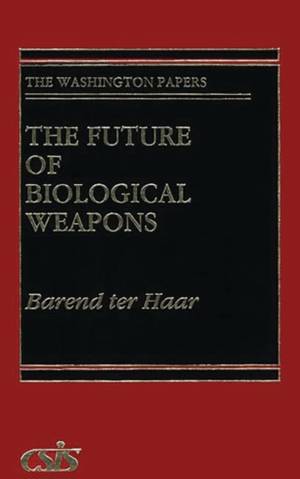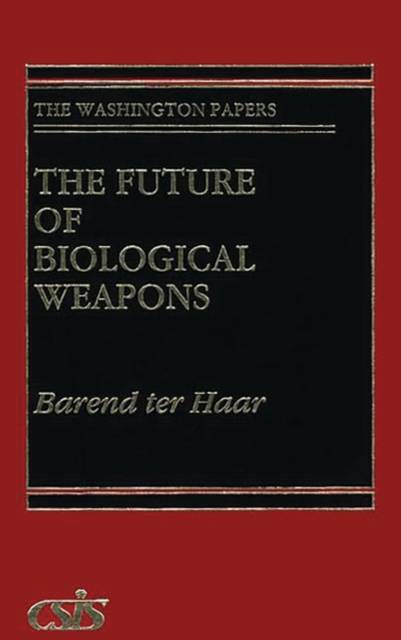
- Retrait gratuit dans votre magasin Club
- 7.000.000 titres dans notre catalogue
- Payer en toute sécurité
- Toujours un magasin près de chez vous
- Retrait gratuit dans votre magasin Club
- 7.000.0000 titres dans notre catalogue
- Payer en toute sécurité
- Toujours un magasin près de chez vous
Description
The know-how and materials required to produce biological warfare agents are the same as those required for medical and veterinary products; biological warfare technology is quickly spreading across the globe. In this new study, Barend ter Haar argues that a policy of nonproliferation might slow down the current trend toward worldwide deployment of biological weapons, but it is ultimately doomed without a strengthened ban on them.
Ter Haar discusses the Biological Weapons Convention of 1972, which did not categorically prohibit activities leading to biological weapons and failed to provide confidence-building measures and allegation procedures. He evaluates the confidence measures added in the 1986 Second Review Conference, and demonstrates how they were neglected by some countries. Ter Haar concludes that the Convention measures are almost unverifiable and proposes a stronger, universal ban that includes improved procedures, regular consultative meetings, extended information exchange restrictions, routine verification, challenge inspections, and other measures. This study is an important resource for professionals, students, and scholars of diplomacy, disarmament, international relations, and the protection of the environment.Spécifications
Parties prenantes
- Auteur(s) :
- Editeur:
Contenu
- Nombre de pages :
- 216
- Langue:
- Anglais
- Collection :
Caractéristiques
- EAN:
- 9780275941000
- Date de parution :
- 19-06-91
- Format:
- Livre relié
- Format numérique:
- Genaaid
- Dimensions :
- 154 mm x 241 mm
- Poids :
- 512 g

Les avis
Nous publions uniquement les avis qui respectent les conditions requises. Consultez nos conditions pour les avis.






